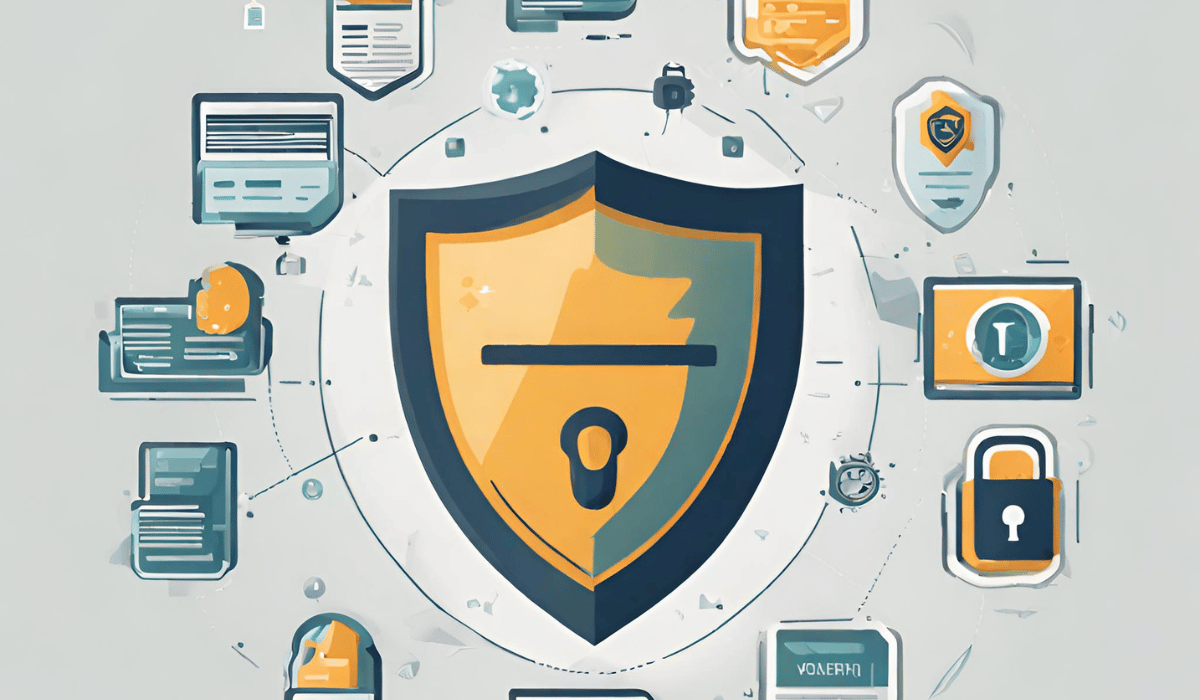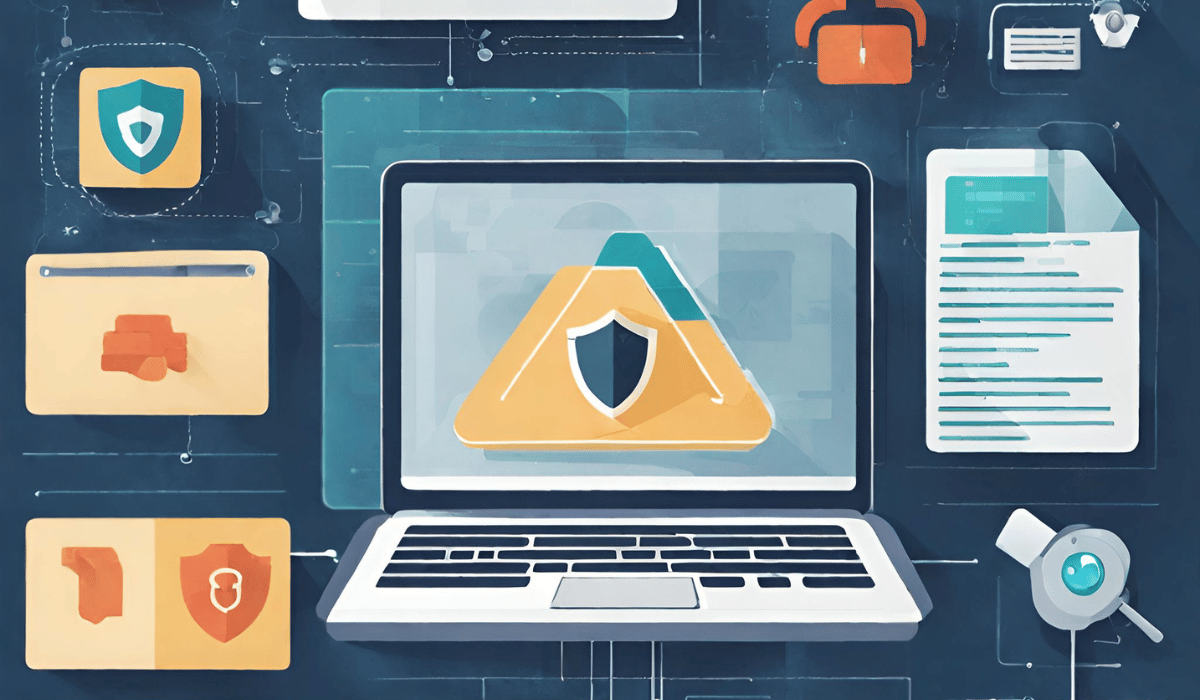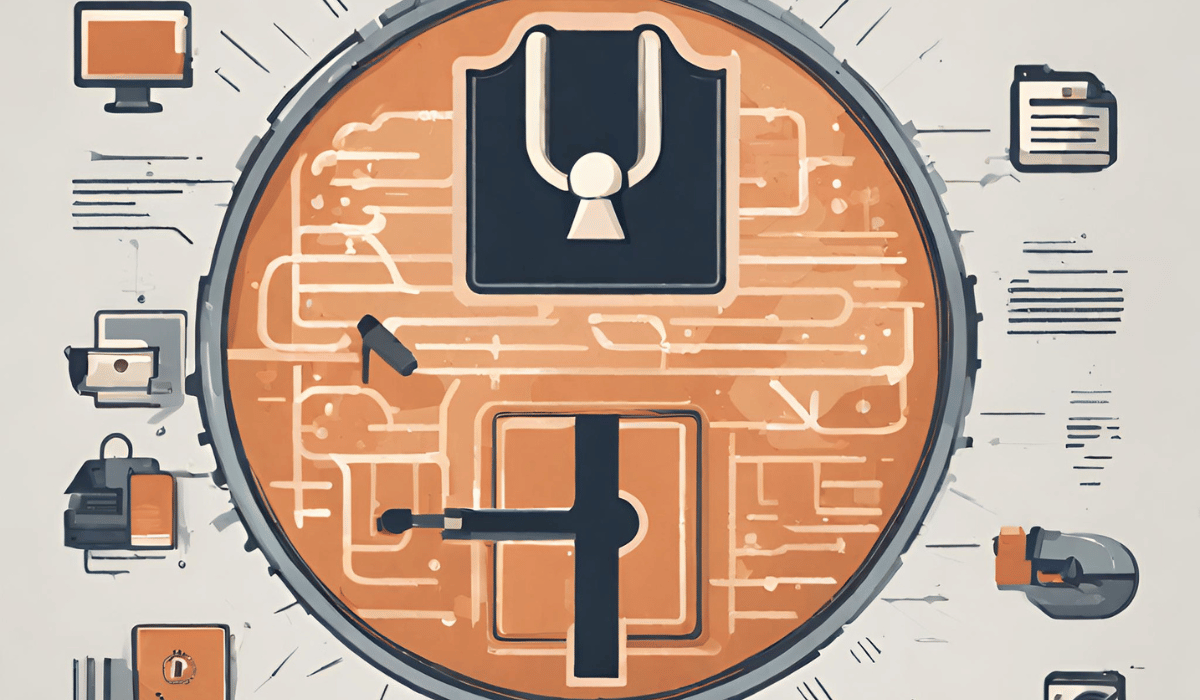Introduction
Salesforce is a cloud-based platform that provides businesses with a wide range of customer relationship management (CRM) tools. It allows organizations to store and manage their customer data in one centralized location, making it easier to understand their customers’ needs and preferences. However, with the increasing number of cyber-attacks and data breaches, there has been growing concern over the security of customer data stored on Salesforce.
Salesforce uses industry-standard encryption methods to protect its customers’ sensitive information both in transit and at rest. Salesforce encrypts all data at rest using 256-bit Advanced Encryption Standard (AES) encryption, which is considered one of the most secure types of encryption available today. All user passwords are also hashed using a one-way algorithm before being stored in encrypted form within Salesforce databases.
What Is Encryption?

Encryption is the process of converting plain text or data into an unreadable form to prevent unauthorized access. It is a vital technique used in securing data, especially when it comes to sensitive or confidential information. Encrypted data can only be deciphered by authorized users with a specific key or password, making it almost impossible for hackers to gain access.
Types Of Encryption
There are several types of encryption algorithms used to secure data at rest.
Advanced Encryption Standard
Advanced Encryption Standard (AES) uses a symmetric key cypher to encrypt and decrypt data. AES is widely considered to be one of the most secure encryption standards available today, with 128-bit and 256-bit keys being the most commonly used key lengths.
Triple Data Encryption Standard (3DES)
As its name implies, it employs three separate keys, each of which encrypts and decrypts a block of data before passing it on to the next key. While still widely used, 3DES has been largely supplanted by AES in recent years due to its more limited cryptographic strength.
RSA Encryption
RSA encryption is named after its inventors Ron Rivest, Adi Shamir, and Leonard Adleman. RSA uses public-key cryptography where two separate keys – one public and one private – are generated for each user or device. The public key can be freely distributed while only the private key can be used for decryption purposes.
Salesforce’s Security Measures
Overview Of Salesforce’s Security Measures
Salesforce is a cloud-based CRM platform that has established itself as one of the most reliable and secure options in the market. One of its key strengths lies in its robust security measures, which are designed to protect user data from unauthorized access, theft, or loss. Salesforce ensures that all data stored on its servers is encrypted at rest using AES-256 encryption, which is one of the strongest encryption protocols available today. This means that even if someone gains physical access to the servers where Salesforce stores your data, they won’t be able to read it without proper authorization.
In addition to encrypting data at rest, Salesforce also uses other security measures such as SSL/TLS encryption for data transmission over the internet. This protocol ensures that all information exchanged between your device and Salesforce’s servers remains private and cannot be intercepted by third parties. Moreover, Salesforce has implemented strict access controls and authentication mechanisms such as multi-factor authentication (MFA), IP range restrictions, and role-based permissions to ensure that only authorized users can access sensitive data.
Salesforce provides a comprehensive set of security measures designed to protect user data from various threats. Its commitment to maintaining high-security standards is evident in its compliance with several industry standards such as SOC 2 Type II, ISO/IEC 27001:2013 certification, and HIPAA compliance for healthcare organizations, among others. As a result, businesses can trust Salesforce with their critical customer information knowing that it’s in safe hands.
Understanding Salesforce Data Encryption At Rest
What Is Data Encryption At Rest?
Data encryption at rest refers to the process of encrypting data while it is stored in a database or any other type of storage media. This ensures that in the event of a security breach or unauthorized access, the sensitive information remains protected and cannot be accessed by hackers or cybercriminals.
How Salesforce Implements Data Encryption At Rest?
Salesforce implements data encryption at rest through AES-256-bit encryption technology. This ensures that all data stored in Salesforce databases is encrypted with a unique key that can only be decrypted using authenticated credentials, ensuring maximum confidentiality and integrity.
In addition to this, Salesforce also provides customers with the option to bring their encryption keys (BYOK). This allows organizations to manage their keys for added control over their sensitive data. With BYOK, customers can encrypt and decrypt their data independently of Salesforce’s systems.
Benefits Of Data Encryption At Rest

The benefits of this practice are numerous, including increased security and protection against data breaches. Encrypting Salesforce data at rest ensures that even if someone gains unauthorized access to your database, they won’t be able to read or use any sensitive information.
Furthermore, implementing encryption at rest helps organizations meet compliance requirements for data protection. It provides an additional layer of security for confidential information such as customer details, financial reports, and intellectual property. This is particularly important for industries with strict regulations around privacy and security, such as healthcare and finance.
Encrypting data at rest also helps with disaster recovery efforts. In the event of a system failure or natural disaster that results in data loss, encrypted data can be restored without risking sensitive information being exposed to unauthorized individuals.
How To Check Salesforce Data Encryption At Rest?
Checking Salesforce’s Security Certifications
Salesforce offers a range of security certifications to give its users peace of mind regarding their data’s safety. One such certification is SOC 2 Type II, which verifies that Salesforce has implemented robust controls and measures to protect customer information.
Another essential certification offered by Salesforce is ISO 27001, which sets out best practices for information security management systems. This certification ensures that Salesforce follows strict procedures and processes when it comes to managing sensitive information, including encryption at rest and in transit. It also ensures that all personnel involved in handling this information are appropriately trained and have access only to what they need.
Using Third-Party Tools
Many organizations are still hesitant to store sensitive data in the cloud. This is where third-party tools come in. These tools can provide an additional layer of security and encryption for your Salesforce data at rest.
One popular option is CipherCloud, which offers encryption and tokenization capabilities. CipherCloud encrypts data before it reaches Salesforce’s servers, ensuring that even if someone were to access the data, they would not be able to read it without the proper decryption key. Another tool worth considering is Vaultive, which provides granular control over user access to Salesforce data.
Implementing third-party tools may require additional training or IT resources. Additionally, some organizations may have concerns about vendor lock-in or compatibility issues with future updates to Salesforce’s platform.
Data Encryption And Compliance
To protect data from unauthorized access or theft, Salesforce uses encryption to secure the stored data both at rest and in transit. It encrypts all data at rest using an industry-standard AES-256 encryption algorithm. The encryption keys are managed by Salesforce’s own key management system (KMS), which ensures that the keys are rotated frequently and securely stored away from the encrypted data. Additionally, Salesforce also offers customers the option to use their own KMS to manage their encryption keys.
Compliance with various regulations such as HIPAA, GDPR, and CCPA is critical for companies that handle sensitive customer data. To ensure compliance with these regulations, Salesforce has implemented several controls such as access controls, audit trails, and regular security assessments along with robust encryption mechanisms like TLS 1.2/1.3 for in-transit communication between clients’ devices and Salesforce servers. As a result of these measures taken by Salesforce to secure its customers’ data from any threat of breach or theft, it has gained trust among businesses worldwide in terms of maintaining stringent standards when it comes to managing customers’ sensitive information through its CRM platform.
Common Concerns About Salesforce Data Encryption At Rest
One common concern is whether encrypted data can be retrieved in case of a system failure or other unexpected event. Fortunately, Salesforce provides robust backup and recovery processes that make sure your encrypted data remains accessible when you need it most. Another concern is related to performance degradation caused by encrypting large amounts of data, but with recent advancements in hardware and software technology, this fear has largely become obsolete as modern systems can handle encryption with minimal impact on performance.
FAQs
Is Salesforce Data Encrypted In Transit As Well?
Yes, Salesforce data is encrypted in transit using industry-standard security protocols. Salesforce uses Transport Layer Security (TLS) encryption to ensure that all data transmitted between a user’s device and the Salesforce servers are secure. This means that any information entered into Salesforce, whether it be through the web interface or mobile app, is protected against eavesdropping and interception by hackers.
What Happens If My Data Is Not Encrypted At Rest?
If your data is not encrypted at rest, it essentially means that your sensitive information is stored in a vulnerable state. This makes it easy for potential hackers or cybercriminals to gain access to your confidential data and use it for malicious purposes. For example, if you store customer information such as names, contact details, and payment information without encrypting the data at rest, this can lead to unauthorized access and identity theft.
How Often Does Salesforce Update Its Security Measures?

Salesforce, being a cloud-based software provider, is well aware of the criticality of data security. Therefore, it constantly updates its security measures to ensure that customer data is protected from unauthorized access and breaches. As per Salesforce’s official documentation, they follow a multi-layered approach to protect data at rest by encrypting it using both platform-level encryption and field-level encryption.
Can I Choose Which Data Is Encrypted At Rest And Which Is Not?
Yes, Salesforce allows its users to choose which data is encrypted at rest and which is not. Users can customize their encryption settings based on individual needs and compliance requirements.
Is Data Encryption At Rest A Requirement For Gdpr Compliance?
Data encryption at rest is not explicitly required by the General Data Protection Regulation (GDPR), but it is strongly recommended as a measure to protect personal data. The GDPR requires businesses to implement appropriate technical and organizational measures to ensure the confidentiality, integrity, and availability of personal data. Encryption at rest is one such measure that can help achieve these goals.
Conclusion
Salesforce provides industry-leading encryption for data at rest. The platform offers both standard and custom encryption options to ensure that customer data is secure and protected from unauthorized access. This includes robust key management features that allow administrators to control access to sensitive information, as well as audit trails for monitoring activity.
While Salesforce’s encryption capabilities are impressive, organizations need to take additional steps to protect their data. This includes implementing strong passwords and multi-factor authentication, limiting user access to sensitive information, regularly backing up data, and staying up-to-date with security patches and updates.
